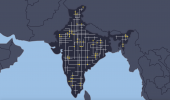The PhD Program in economic analysis and policy prepares students for research careers in economics. While offering training comparable to that received by graduate students in highly ranked economics departments, the Stanford GSB program has several distinct advantages:
-
First, enrollment in the program is small. This encourages close faculty-student contact and allows students to become involved in research. Students work first as assistants on faculty research projects and, as their interests and skills develop, on their own research. Students often begin their publishing careers before completing their degrees.
-
Second, the program is flexible and innovative; students can draw on both the school’s and the university’s distinguished faculty. In addition to the faculty in the economics group at the Stanford GSB and in the University’s economics department, students have access to faculty in political and behavioral sciences; accounting and finance; mathematics, statistics, and computer science; and many other disciplines.
-
Third, the program is part of a top-ranked professional school. This setting allows students to gain a deeper understanding of the actual processes of business decision-making and public policy formulation.


